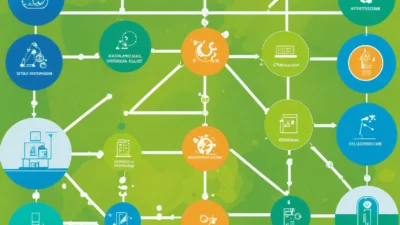Core Concepts in Distributed Systems Design
Understanding the core concepts is essential for anyone involved in Distributed Systems Design. Key elements include decentralization, synchronization, and fault tolerance. Decentralization reduces the dependency on a single location or server, enhancing the system’s resilience and performance. Synchronization ensures that all system components update their state consistently, despite potential communication delays. Fault tolerance, meanwhile, is critical for maintaining system reliability even when individual components fail.
Challenges in Implementing Distributed Systems
Implementing Distributed Systems Design is not without its challenges. Network issues, latency, data consistency, and fault tolerance are significant hurdles that developers must address. Ensuring seamless communication between distributed components, handling partial failures, and maintaining system reliability require careful planning. Designers must implement robust strategies such as data replication, efficient load balancing, and selecting the right communication protocols to mitigate these challenges and enhance system performance.
Best Practices
To achieve optimal performance and reliability, following best practices in Distributed Systems Design is advisable. These include using microservices architecture to ensure components are small and loosely coupled, employing load balancing to distribute work evenly across servers, and implementing comprehensive logging and monitoring to detect and address issues promptly.
In conclusion, Distributed Systems Design is a complex yet rewarding endeavor that plays a pivotal role in the modern software development landscape. By adhering to established principles and overcoming associated challenges, developers can build robust distributed systems that stand the test of time.
Principles of Robust Distributed Systems Design
A well-designed distributed system must adhere to key architectural principles to ensure scalability, reliability, and efficiency. Some of the fundamental principles include:
-
Decentralization – Avoiding single points of failure by distributing responsibilities across multiple nodes.
-
Scalability – Ensuring the system can handle increasing workloads by adding more resources without significant performance degradation.
-
Fault Tolerance – Designing the system to continue functioning correctly despite hardware or software failures.
-
Consistency vs. Availability Trade-offs – Applying the CAP theorem to balance between consistency, availability, and partition tolerance based on system requirements.
-
Efficient Communication – Utilizing appropriate communication protocols and message-passing mechanisms to optimize performance.
-
Security – Implementing authentication, encryption, and access control measures to protect data and communication channels.
By following these principles, developers can create robust distributed systems capable of handling complex workloads while ensuring high availability and performance.





